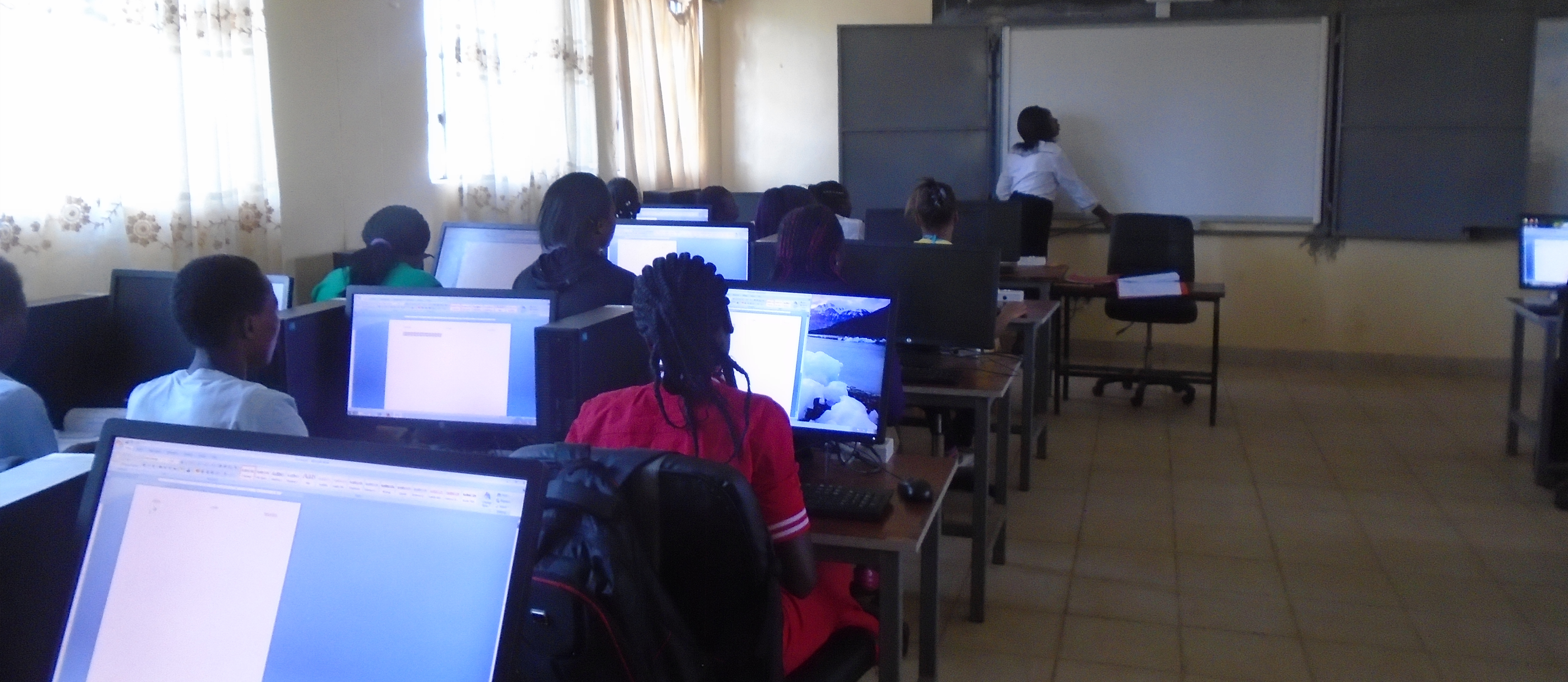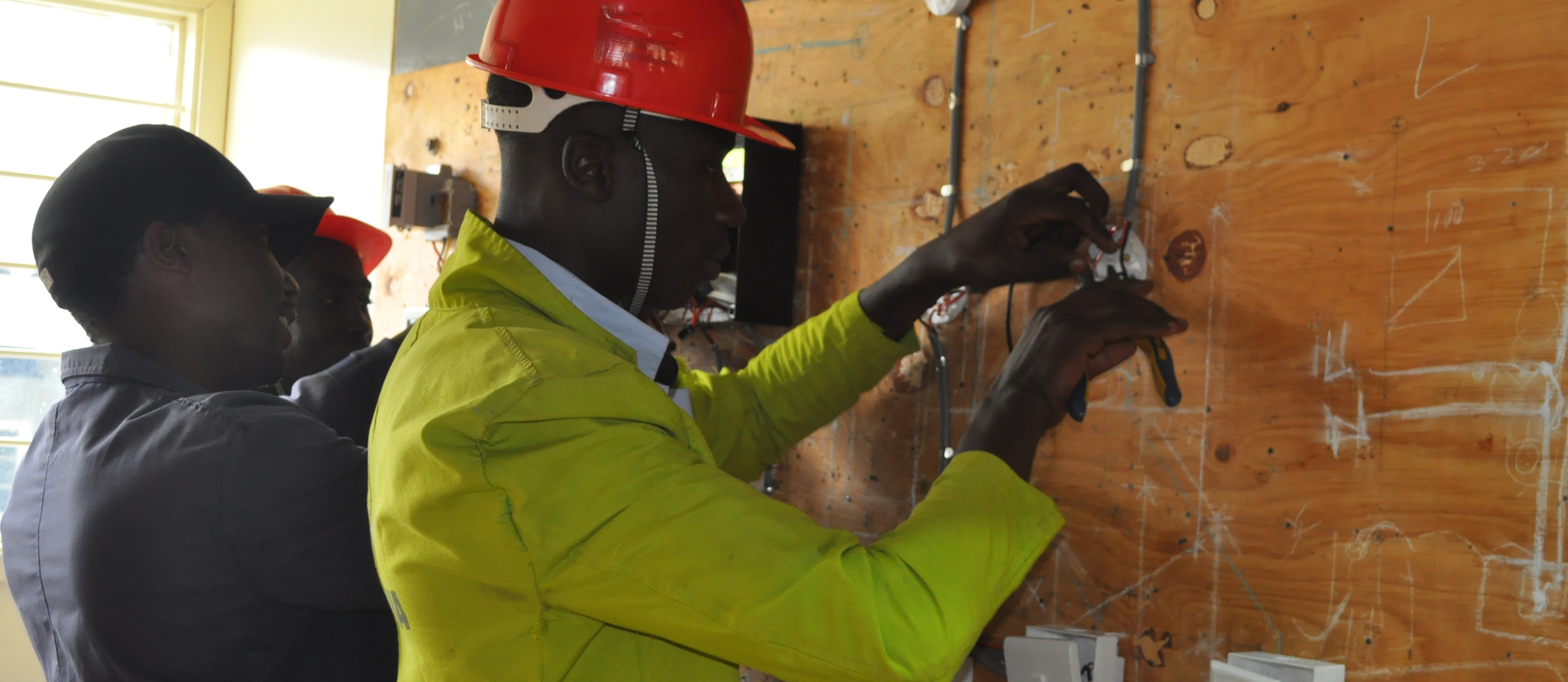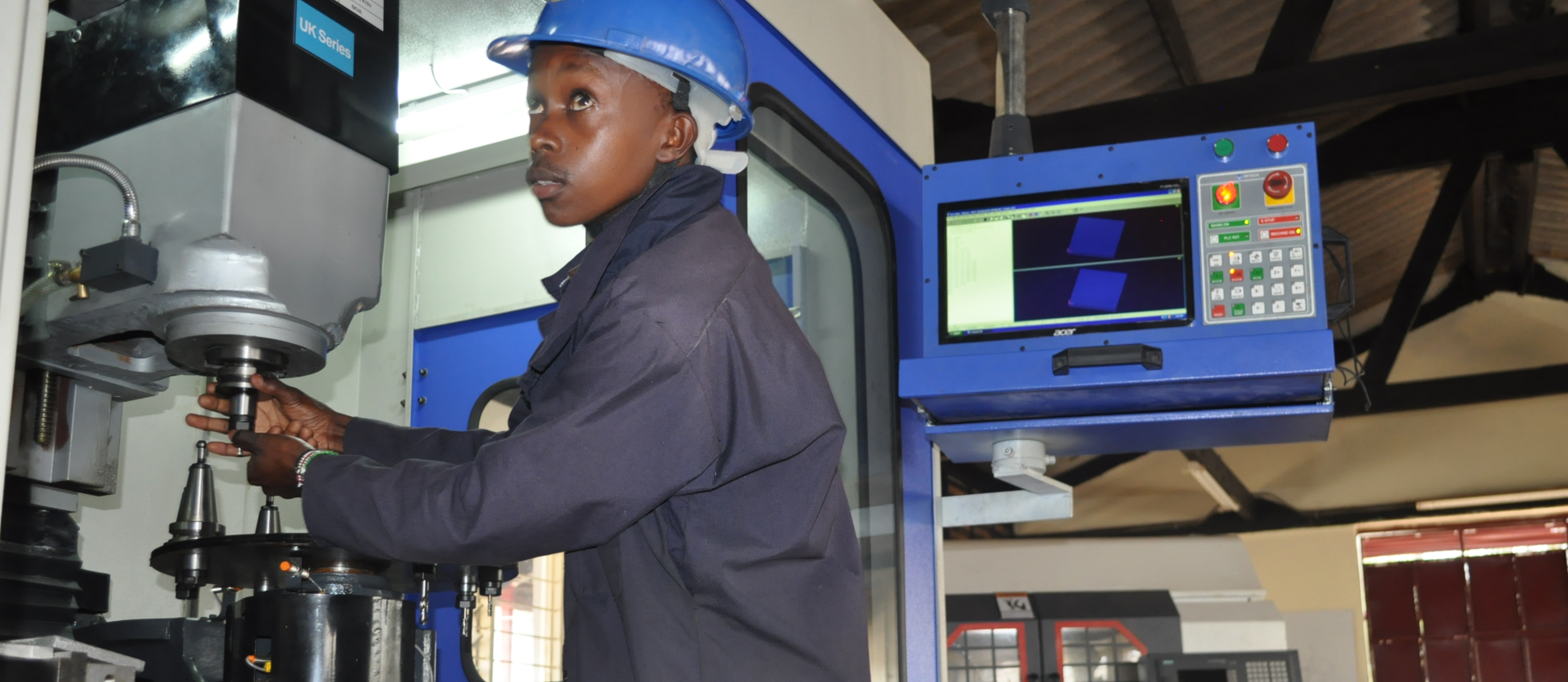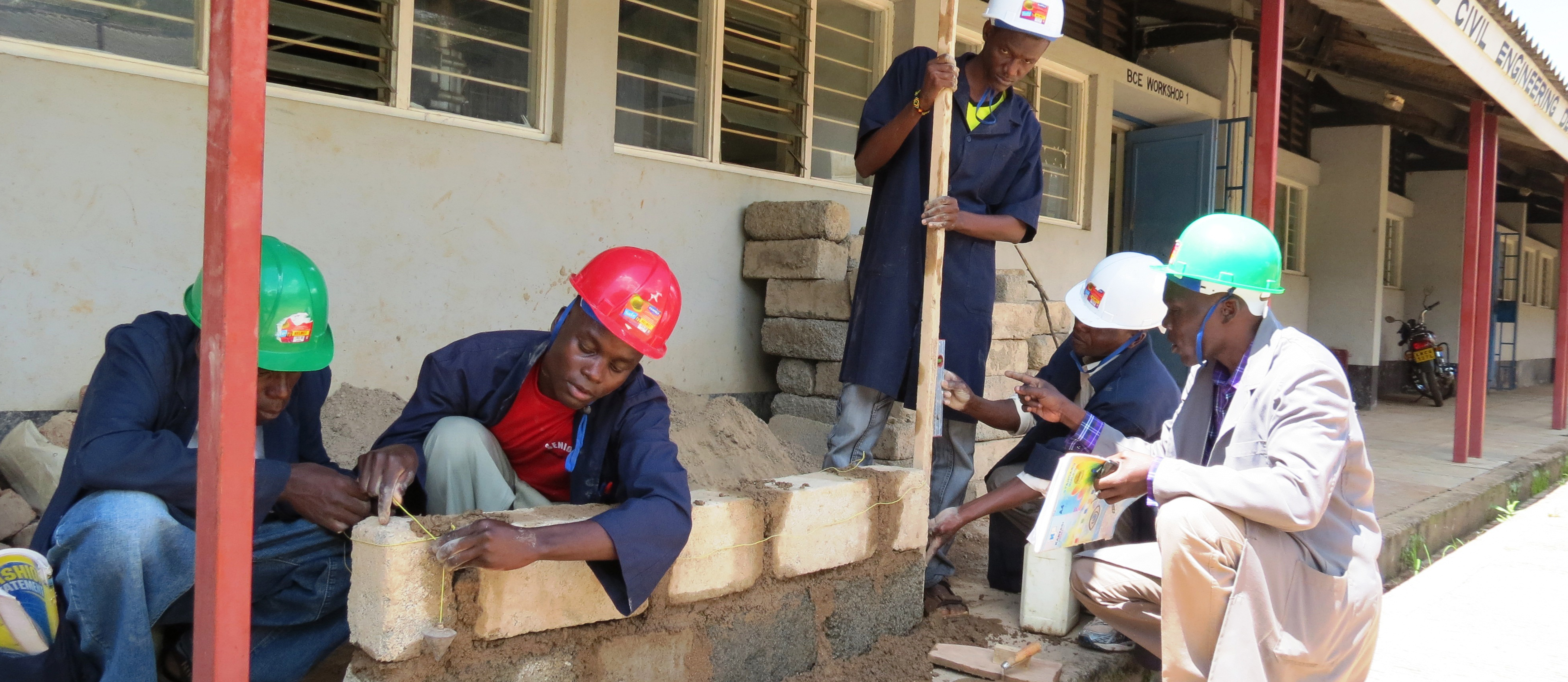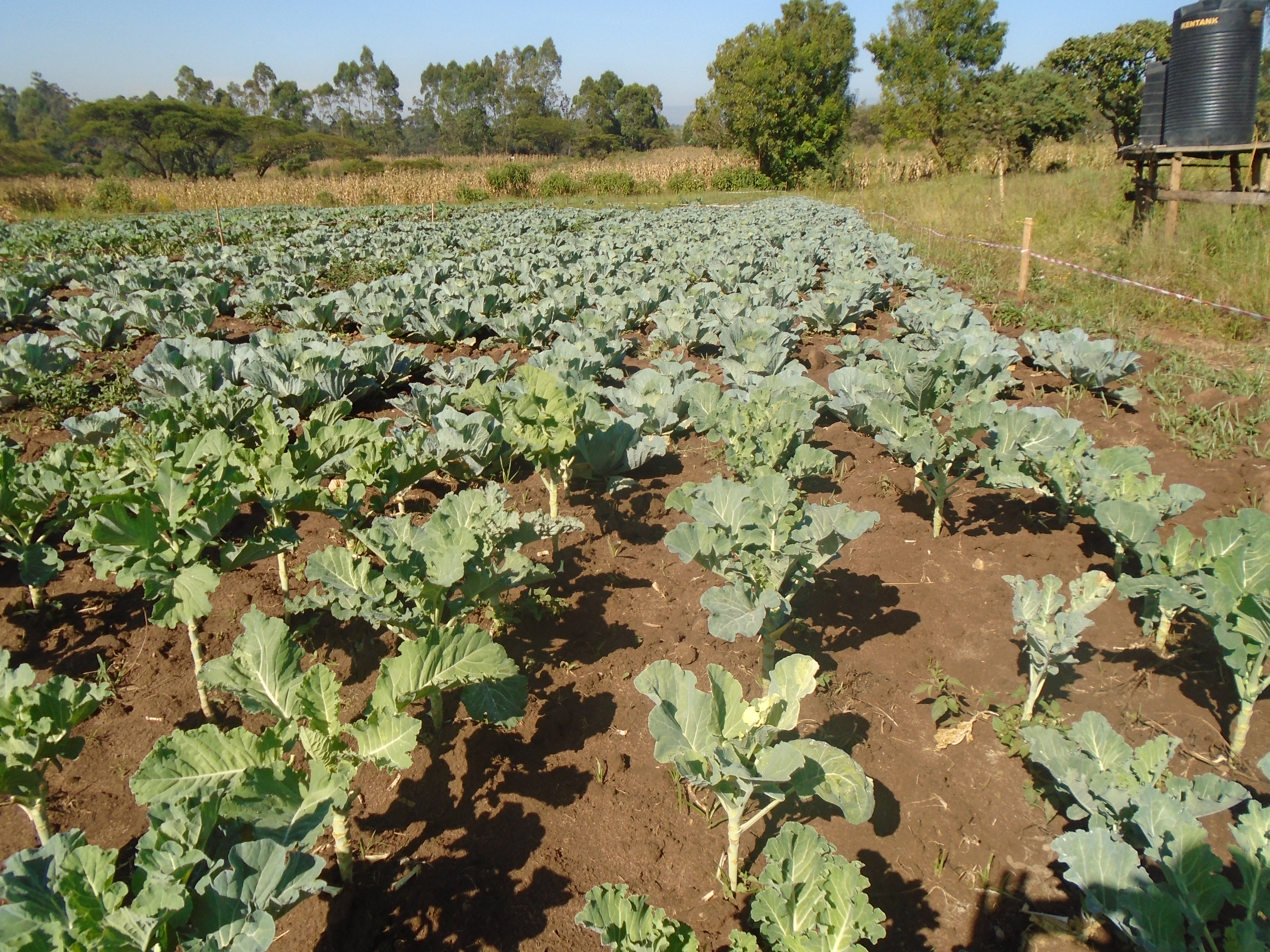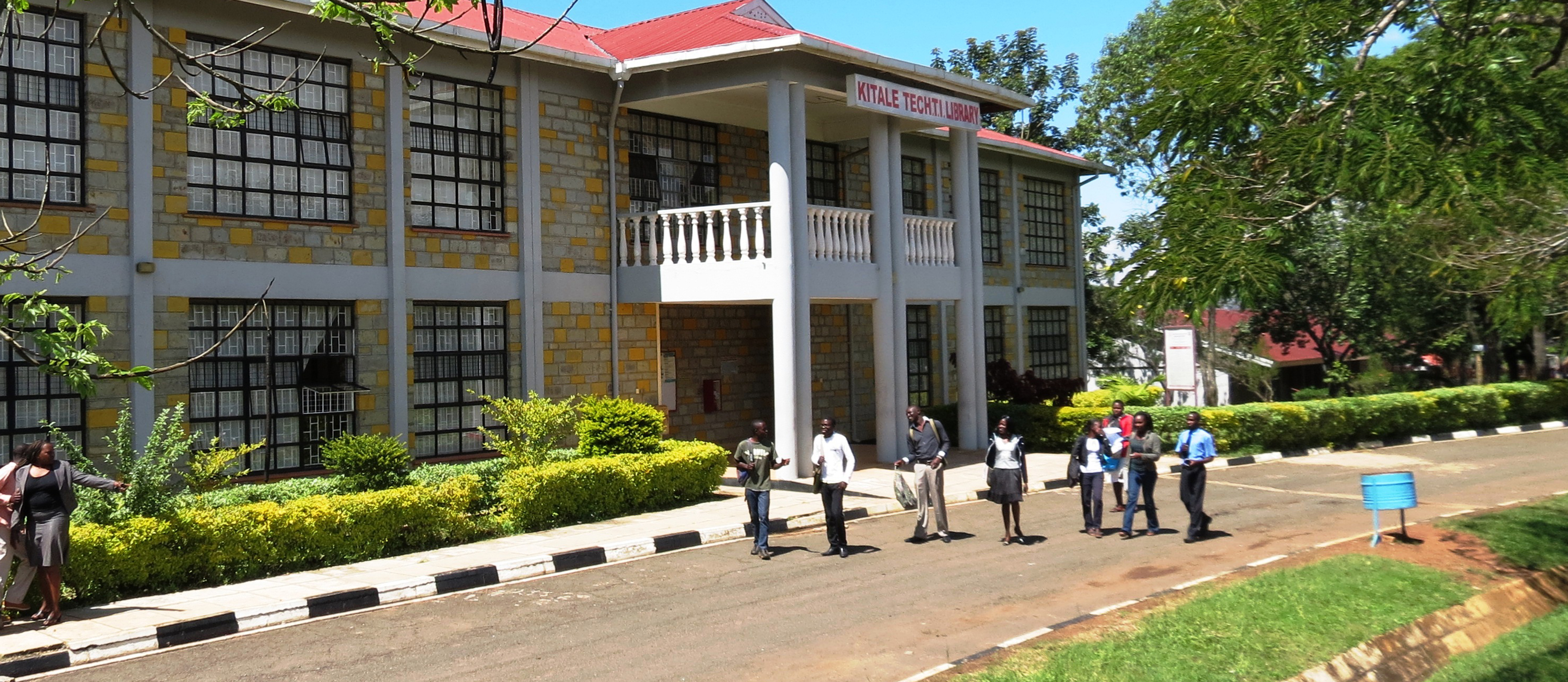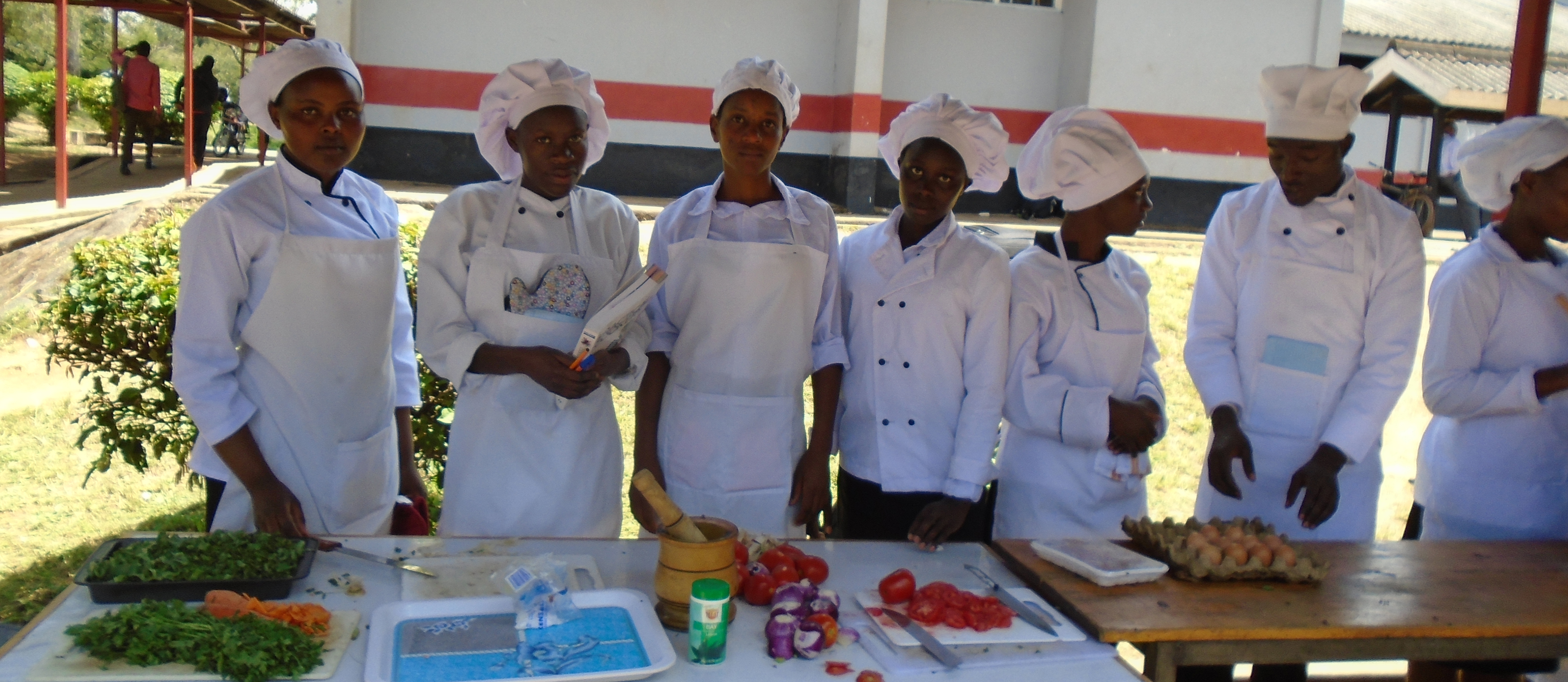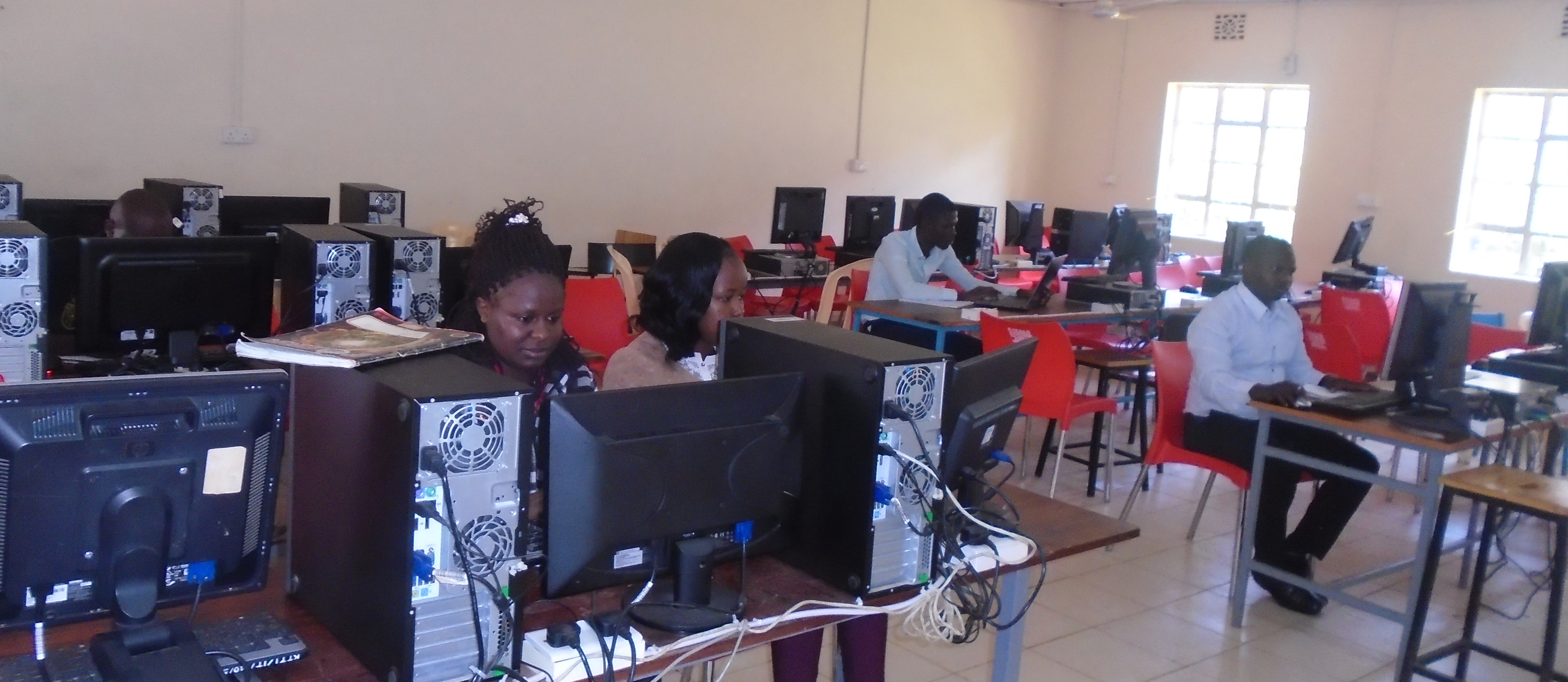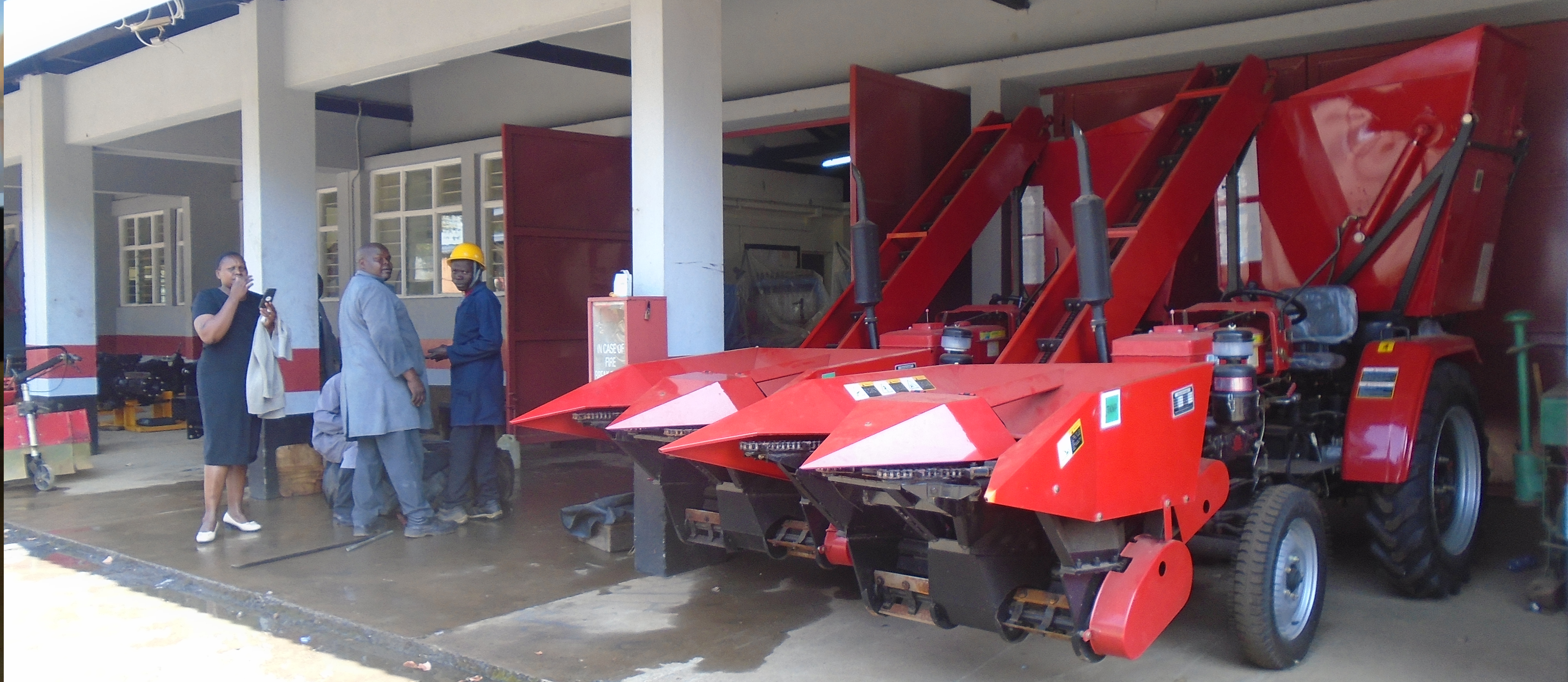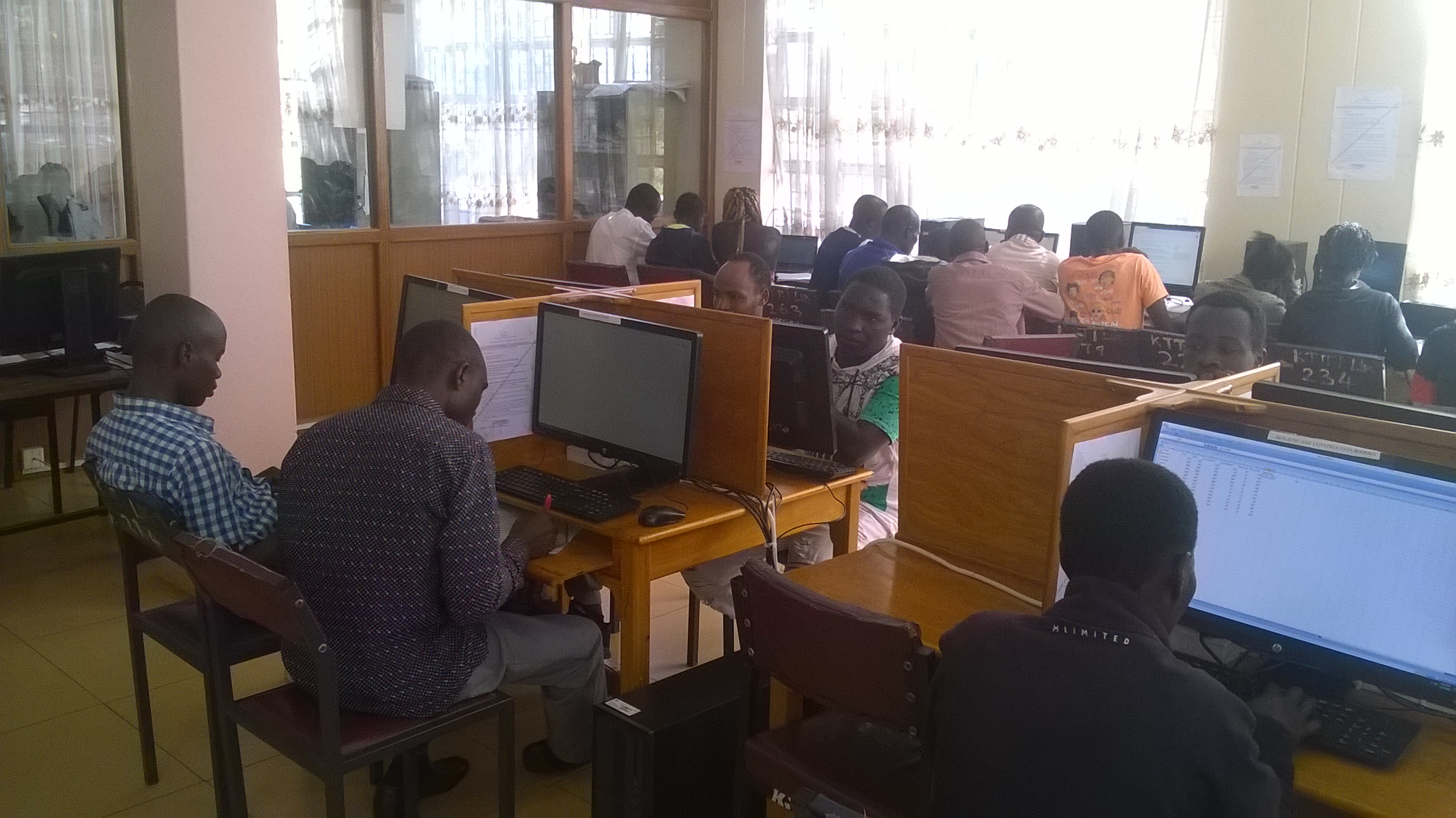MATHEMATICS AND APPLIED SCIENCES
| Courses | PROGRAMS | |
| 1 | Science Laboratory Technology, | Craft certificate in science laboratory TEP Craft certificate in science laboratory MOD |
| 2 | Applied Biology | Diploma in applied biology : TEP |
| 3 | Analytical chemistry | Diploma in analytical chemistry :TEP |
| 4 | Chemical engineering | Diploma in chemical engineering :TEP |
| 5 | Environmental science | Diploma in environmental science : MOD |
| 6 | Medical engineering | Diploma in medical engineering :TEP |
| 7 | Petroleum and Geoscience, | Diploma in petroleum and geoscience : MOD |
| 8
| Food Science and Processing Technology. | Diploma in food science and processing technology :MOD |
| Craft Certificate In Food Processing &Preservation Technology MOD |
The course descriptions, entry requirements, objectives and job opportunities are outlined as follows
CRAFT CERTIFICATE IN SCIENCE LABORATORY TECHNOLOGY
INTRODUCTION TO THE COURSE
The course is intended to equip the trainee with knowledge and operative skills necessary to support the work of professionals in Science Laboratory.
In this course, concepts of Entrepreneurship, Life Skills, Communication Skills and Information Communication Technology (ICT) skills have been included to allow graduates to be prepared to work efficiently and effectively in the current world of work.
The course prepares graduates to secure gainful employment in laboratories within Industries, Scientific Research and Educational institutions.
AIMS OF THE COURSE
Setting and laying out Science Laboratory apparatus and equipment
Carry out qualitative and quantitative laboratory investigations
Have proper response in any kind of hazard in the science laboratory.
DURATION OF THE COURSE
This is a two year course. The curriculum will be offered in modular form where module I is a prerequisite for Modula II. Industrial attachment will be after Module I.
The two modules are:
-Craft Certificate in Science Laboratory Technology Module I
-Craft Certificate in Science Laboratory Technology Module II
ENTRY REQUIREMENTS
The minimum entry requirements are:
a) The pass in Kenya Certificate of Secondary Education (KCSE) with an average of D plain
OR
b) Equivalent qualifications as determined by Kenya national Examinations Council (KNEC).
DIPLOMA IN CHEMICAL ENGINEERING
COURSE DESCRIPTION
Chemical Engineering is concerned with the design, construction, operation and management of processes in which raw material are changed into useful products.
Kenya has a fairly large and expanding chemical process industry and graduates from this department are expected to fit into industries producing such products as petroleum, plastics fertilizers, detergents, soap, glass, metal, gases, cement, sugar, food and paints.
OBJECTIVES
Adapt to work in any chemical process industry.
Demonstrate safety aspects of process plants in relation to design and operation.
Operate the process industry to its optimum conditions.
Plan organize and supervise effectively the work done by craftsmen and artisan.
Acquire practical skills and attitudes that will lead to self-reliance.
Acquaint himself/herself with necessary academic base for further training.
Upon graduating, the diploma graduate can work as:
Quality Assurance Officers in any processing industry.
Machine operator in any chemical industry and related fields.
Shift supervisor in a chemical industry and related field.
Process controller in chemical industry.
Production supervisor in chemical industry and related field.
Analytical chemist in a manufacturing company.
ENTRY REQUIREMENTS
Trainees entering this course should have any of the following minimum requirements:
A pass in a relevant craft course.
Passed Kenya Certificate of Secondary Education (KCSE) with a mean average grade of C-
An approved equivalent qualification.
DIPLOMA IN ENVIRONMENTAL SCIENCE
COURSE DESCRIPTION
Environmental science is the scientific study of environmental systems (air, water, soil and land), the inherent or induces changes on organisms and environmental damages incurred as a result of human interaction with the environment. It`s aim is to identify control and prevent disruption to its systems and species caused by human activity.
OBJECTIVES
Acquire awareness of the environmentas a whole and its related problems
Gain a variety of experiences and acquire basic understanding and knowledge about the environment and its problems
Acquire an attitude of concern for the environment
Participate in environment and protection of the environment
Develop the ability to evaluate measures for the improvement and protection of the environment
Motivating public to participate in environmental protection
JOBS RELATED TO ENVIRONMENTAL SCIENCE
Environmental Education Officer
Environmental manager
Nature conservation officer
Waste Management Officer
Environmental health practitioner
Waste quality scientist
Environmental toxicologist
TYPICAL EMPLOYERS
Local authorities’e.g. county governments
National environmental management authority
Ministry of environment and natural resources
NGO`s e.g. World Vision
Kenya Forest Service
Kenya World Life Service among others
ENTRY REQUIREMENTS
Trainees entering this course should have any of the following minimum requirements:
A pass in any relevant course in environmental science.
Passed Kenya certificate of secondary education (KCSE) with a mean average grade of C-
An approved equivalent qualification.
DIPLOMA IN PETROLEUM GEOSCIENCE
COURSE DESCRIPTION
Petroleum Industry as one of key sectors of the economy contributes greatly to the economy growth of a country. For this reason this course serves to provide a platform for development of technicians in petroleum geoscience. The course equips trainees with knowledge and skills and attitudes in coping with challenges needed in the oil and gas industry.
Upon graduating, the diploma graduate:
A graduate will be efficient to carry out petroleum exploration and production.
He/ she will be possessed with supervisory skills necessary for supervision and coordination of artisan at operational level
Objectives of the course:
Acquire the necessary and relevant knowledge, skills and attitudes for oil and gas exploration and production.
Acquire basic background knowledge about the formation of petroleum products.
Understand the processes of exploration, drilling and production in petroleum sector.
Appreciate various policies, laws, and regulation governing petroleum exploration and production exercises.
Achieve a base for further training in Petroleum Geoscience.
Upon graduating, the diploma graduate can work in:
Architectural, engineering and related fields: helping engineers develop methods of extracting oil and gas.
Mining, quarrying, oil and gas extraction industries.
National government (Ministry of Mining and Energy).
County governments (Ministry of Natural Resources).
Colleges, local and private schools as tutors.
Entry requirements
Trainees entering this course should have any of the following minimum requirements:
Passed a relevant craft certificate course in petroleum geoscience.
Kenya certificate of secondary education (KCSE) mean grade C (Plain).
Geography C (Plain), Chemistry C (Plain), Physics C (Plain) will be an added advantage
Diploma in Food Science and Processing technology (DFPT)
General objectives of the Course
The main objective of the course is to equip the trainee with knowledge, practical skills and attitudes to work in the Food processing industry.
The course is designed to enable the trainee to utilize locally available resources to process specific food products. Upon completion, the trainee will be qualified to work in food processing industries in production capacity, to carry out research, or venture into entrepreneurship in the food industry.
Specifically, it is expected that at the end of the course, the trainee should be able to:
Operate common types of food processing equipment and machinery.
Choose appropriate raw materials and equipment for processing.
Apply the principles of food processing in industry.
Have a good foundation for further training in food processing industry
Admission requirements
A mean grade of C (plain) at KCSE, with a minimum of C- in biology and Chemistry. Physics is an added advantage.
A certificate in Food Processing and Preservation technology
Course structure
Upon graduating, the diploma graduate can work as:
A technician in food processing industry
Maintenance technician
Middle level management
Craft certificate in Food Processing and preservation technology (CFPPT)
This course is a modular program that is packed into two module namely
Craft certificate in food processing and preservation technology module I
Craft certificate in food processing and preservation technology module I
General objectives of the Course
The main objective of the course is to equip the trainee with knowledge, practical skills and attitudes that enables him/her to perform relevant duties in food industry.
It also is designed to enable the trainee to utilize locally available resources to process and preserve specific food products. Upon completion, the trainee will be qualified to work in food processing industries in production capacity, perform middle supervisory functions, or venture into entrepreneurship in the food industry.
Specifically, it is expected that at the end of the course, the trainee should be able to:
Operate common types of food processing equipment and machinery.
Choose appropriate raw materials and equipment for processing.
Apply the principles of food processing and preservation in any food industry.
Have a good foundation for further training in food processing industry
ENTRY REQUIREMENTS
The minimum entry requirements are:
a) The pass in Kenya Certificate of Secondary Education (KCSE) with an average of D plain
OR
b) Equivalent qualifications as determined by Kenya national Examinations Council (KNEC).
Course structure
Upon graduating,Craft certificate graduate in food processing and preservation technology can work as:
A technician in food processing industry
Maintenance technician in a food processing industry
Middle level management supervisor
Food quality and preservation officer in a food industry
The potential employers
Food processing and preservation industries
National and county government ministries concerned with food security
Government parastatals such as national cereal and produce board, Kebs


 MATHEMATICS AND APPLIED SCIENCES
MATHEMATICS AND APPLIED SCIENCES

